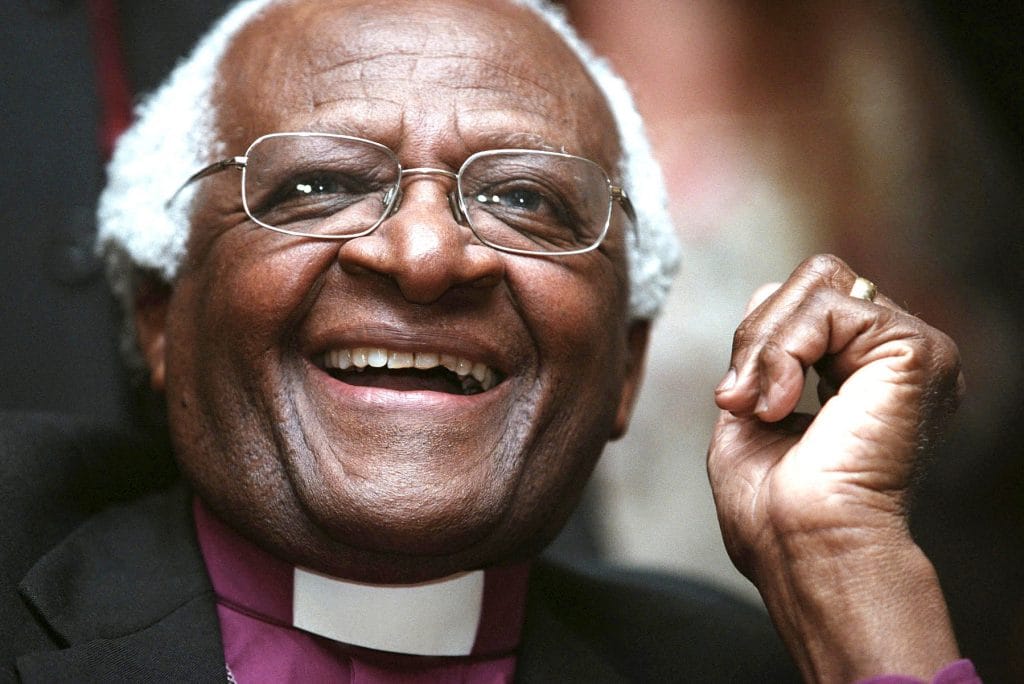Desmond Mpilo Tutu was born on October 7, 1931, in Klerksdorp, a small town in the former Transvaal province of South Africa. He was the second of four children born to Zachariah Tutu, a teacher, and Aletta Matlhare, a domestic worker. Tutu grew up in a racially segregated South Africa under the system of apartheid, which would come to define much of his later activism and political engagement.
After a bout of tuberculosis in his teenage years, Tutu decided to pursue the priesthood rather than follow his father into teaching. He studied at St Peter’s Theological College in Johannesburg and was ordained an Anglican priest in 1961. Later, he pursued postgraduate theological studies in London, earning a Master of Theology degree from King’s College in 1966.
Early Clerical Work and Rising Activism
Tutu’s religious career provided him a platform from which to speak out against social injustices. Upon returning to South Africa in the late 1960s, he taught theology and became increasingly vocal about the apartheid regime. In 1975, he was appointed Dean of St Mary’s Cathedral in Johannesburg, the first Black person to hold that position.
In 1976, during the time of the Soweto Uprising, he was appointed Bishop of Lesotho and later became the General Secretary of the South African Council of Churches (SACC) in 1978. This role was pivotal: it marked the formal beginning of his political activism.

Political Career: Opposition to Apartheid
Although never a member of a political party, Desmond Tutu was one of apartheid’s fiercest critics and one of the most visible moral voices against systemic racism and injustice. His political career, though rooted in religious leadership, was characterized by bold public engagement, diplomatic intervention, and grassroots mobilization.
As head of the SACC, Tutu transformed the council into a major center of anti-apartheid resistance. He used his position to demand sanctions against the apartheid regime and called for the international community to divest from South Africa. Unlike some other activists, he maintained a nonviolent stance, inspired by his Christian faith and the teachings of Mahatma Gandhi.
In the 1980s, Tutu emerged as the leading voice for peaceful resistance to apartheid. He participated in protests, gave speeches, and conducted public prayers that often became political rallies. His approach was one of reconciliation rather than revenge, and he consistently called for dialogue over violence, even as the apartheid regime intensified its oppression.
In 1984, he was awarded the Nobel Peace Prize in recognition of his courageous leadership and moral clarity in the face of brutal racial oppression. The award elevated his global status and further legitimized the anti-apartheid struggle in the eyes of the international community.
Archbishop of Cape Town
In 1986, Tutu was appointed Archbishop of Cape Town, becoming the first Black person to hold the highest position in the Anglican Church in southern Africa. This role not only solidified his spiritual leadership but also expanded his influence as a political figure. He used his sermons, public appearances, and international connections to continue pressing for an end to apartheid.
Tutu was a key figure in encouraging white South Africans to recognize the moral bankruptcy of apartheid, and he also worked tirelessly to promote unity among Black liberation groups, who often had differing visions and methods.

Post-Apartheid Contributions: Truth and Reconciliation Commission
After apartheid was dismantled in the early 1990s and Nelson Mandela became president in 1994, Tutu remained a vital figure in shaping the new South Africa. One of his most significant political contributions during this time was his leadership of the Truth and Reconciliation Commission (TRC), which was established to address the human rights violations committed during the apartheid era.
Tutu chaired the TRC from 1996 to 1998, insisting on a process rooted in truth-telling, forgiveness, and national healing. The commission offered amnesty to those who fully disclosed their political crimes, regardless of which side they fought for. Tutu’s role in the TRC was emotionally taxing but pivotal in fostering a peaceful transition and setting a global standard for post-conflict reconciliation.
Later Years and Continued Political Engagement
Even in retirement, Tutu remained politically active. He criticized corruption in the post-apartheid government, including that of the African National Congress (ANC). He was an outspoken critic of President Thabo Mbeki’s AIDS policies and expressed disappointment in Jacob Zuma’s leadership, particularly regarding ethical governance and human rights.
Tutu also became a global advocate for social justice, speaking out on issues ranging climate change, poverty and the Israel-Palestine conflict. He co-founded The Elders, a group of global leaders working on peace and human rights, alongside Nelson Mandela and others.

Legacy of Desmond Tutu
Desmond Tutu passed away on December 26, 2021, at the age of 90. His death was met with a global outpouring of tributes from political, religious, and civil society leaders. He is remembered as one of the most principled and compassionate voices in modern history — a man who used his religious authority to engage in deeply political work, always striving for peace, justice, and human dignity.
Desmond Tutu’s political career was deeply intertwined with his religious vocation. Though he never held formal political office, his influence on the political landscape of South Africa — and the world — was profound. Through nonviolent resistance, international advocacy, and a moral clarity that transcended ideology, Tutu left an enduring legacy as both a spiritual shepherd and a fearless political visionary.


